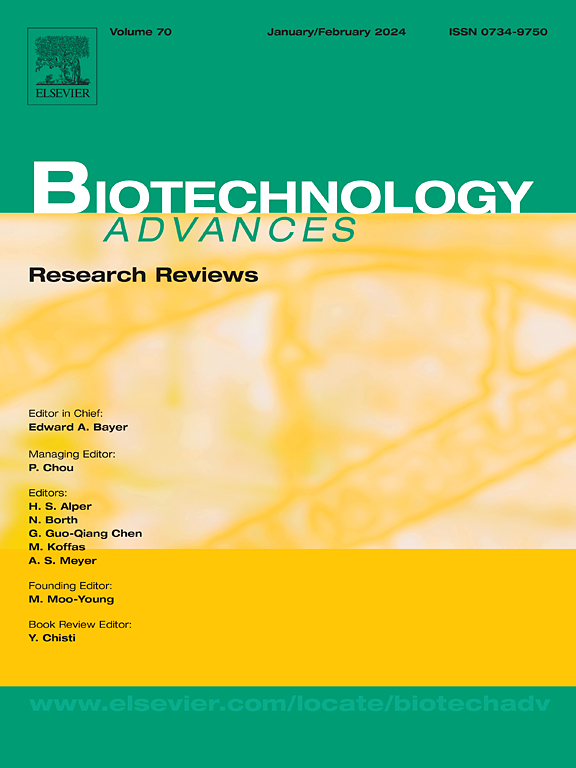Advances of computational protein design: Principles, strategies and applications in nutrition and health
IF 12.5
1区 工程技术
Q1 BIOTECHNOLOGY & APPLIED MICROBIOLOGY
引用次数: 0
Abstract
Computational methods and AI technology have had a profound impact on protein design, significantly enhancing the ability to predict protein structures and create proteins with custom-tailored functions. With the help of computational methods, traditional protein design strategies such as directed evolution, fusion protein, and key subunit interface redesign show unprecedented progress in the design of various protein biomaterials such as nanocages, nanocarriers, antibodies, biocatalytic enzymes and inhibitory peptides. Strategies include physics-mediated design, which leverages the physical principles underlying protein structure and dynamics, and AI-mediated design, which employs machine learning techniques to generate and optimize protein configurations. Together, these approaches represent the cutting-edge methodologies in the rational design of novel proteins with desired functions. By using these approaches, novel protein molecules, assemblies, antibodies and responsive nanofibrils were constructed, which can be further applied in the field of nutrition and health.
计算蛋白质设计的进展:营养和健康的原则、策略和应用
计算方法和人工智能技术对蛋白质设计产生了深远的影响,显著提高了预测蛋白质结构和创造具有定制功能的蛋白质的能力。在计算方法的帮助下,传统的蛋白质设计策略,如定向进化、融合蛋白和关键亚基界面重新设计,在纳米笼、纳米载体、抗体、生物催化酶和抑制肽等各种蛋白质生物材料的设计中取得了前所未有的进展。策略包括物理介导的设计,它利用蛋白质结构和动力学的物理原理,以及人工智能介导的设计,它利用机器学习技术来生成和优化蛋白质配置。总之,这些方法代表了具有所需功能的新型蛋白质合理设计的前沿方法。利用这些方法,构建了新的蛋白质分子、组装体、抗体和反应性纳米原纤维,可进一步应用于营养和健康领域。
本文章由计算机程序翻译,如有差异,请以英文原文为准。
求助全文
约1分钟内获得全文
求助全文
来源期刊

Biotechnology advances
工程技术-生物工程与应用微生物
CiteScore
25.50
自引率
2.50%
发文量
167
审稿时长
37 days
期刊介绍:
Biotechnology Advances is a comprehensive review journal that covers all aspects of the multidisciplinary field of biotechnology. The journal focuses on biotechnology principles and their applications in various industries, agriculture, medicine, environmental concerns, and regulatory issues. It publishes authoritative articles that highlight current developments and future trends in the field of biotechnology. The journal invites submissions of manuscripts that are relevant and appropriate. It targets a wide audience, including scientists, engineers, students, instructors, researchers, practitioners, managers, governments, and other stakeholders in the field. Additionally, special issues are published based on selected presentations from recent relevant conferences in collaboration with the organizations hosting those conferences.
 求助内容:
求助内容: 应助结果提醒方式:
应助结果提醒方式:


